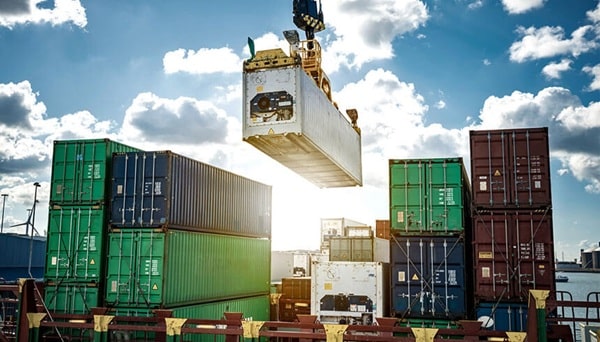Running a manufacturing business on a global scale is an exciting opportunity, especially when the product is strong and demand continues to grow. With this opportunity comes the need to manage international payments, fund large export orders, and handle financial risks across different markets.
The good news is that export finance is built to support exactly these needs. If you have ever experienced delays in receiving payments or needed funds to meet overseas demand, you are not alone. Let’s find out how export finance works, the role of trade services, and the benefits they offer to growing businesses.
What Is Export Finance?
Export finance refers to a set of financial services that help businesses handle overseas transactions with confidence. It is designed to provide timely working capital, reduce payment risks, and offer financial flexibility, helping to manage the complexities of international trade.

Whether your business is sending bulk orders to Europe or fulfilling a first-time shipment to Southeast Asia, export finance makes it easier to manage cash flow and fund production cycles. Some key solutions include:
- Invoice financing
- Letters of Credit (LCs)
- Export credit insurance
- Bank guarantees
These instruments allow manufacturers to receive payment in advance or shortly after shipment, even if the overseas buyer delays the settlement. Export finance provides exporters with the support they need to grow steadily and confidently take on more international orders, without worrying about payment delays.
Key Export Finance Options Available for Manufacturers
For manufacturers looking to expand internationally, understanding the key export finance options available is crucial to ensuring smooth operations and sustained growth.
1. Invoice Financing
Invoice financing is one of the most accessible forms of export finance. It allows you to receive a large portion of the invoice value upfront while the buyer completes the payment later. This helps keep operations running without any delays.
If you are handling a bulk order with extended credit terms, invoice financing can be a practical option to maintain liquidity.
2. Letters of Credit (LCs)
An LC is a formal guarantee from the buyer’s bank to pay you once you meet the agreed shipment terms. It significantly reduces the risk of non-payment and gives peace of mind when dealing with new or overseas buyers.
Export finance providers often assist with both LC advising and LC confirmation, helping ensure that every term and document is aligned for a successful transaction.
3. Export Credit Insurance
This is another layer of safety, especially when dealing with unpredictable markets or new customers. Export credit insurance covers you in case of non-payment due to buyer insolvency, political instability, or currency issues. It is one of the lesser-known but highly valuable tools in export finance.
4. Bank Guarantees
A bank guarantee protects both you and your buyer. If anything goes wrong in fulfilling the contract terms, the bank steps in as a guarantor. This builds trust and makes negotiations smoother with overseas clients.
How Trade Services Help you Manage International Orders
Other than sending goods, exporting is about managing end-to-end documentation, compliance, and financial settlements. That is where trade services become essential. Here’s how some of them can support you:
- Export Bill Collection
After you ship your products, the last thing you want is to wait endlessly for payments. Export bill collection ensures that all necessary documents reach the overseas bank quickly and accurately. Once the documentation is in order, funds are transferred to your account promptly.
It reduces the overall collection cycle and improves working capital flow.
- Advance Payments Towards Exports
In some cases, you can request a portion of the payment before dispatching the goods. With proper export finance support, you can receive these funds to cover raw material costs and manufacturing overheads. This becomes especially helpful when fulfilling large or customised international orders.
- Export LC Advising and Confirmation
Handling LCs requires a clear understanding of trade rules. Export LC advising ensures that you receive expert guidance on meeting the documentation requirements. LC confirmation, on the other hand, adds an extra layer of payment assurance, so even if the overseas bank defaults, your payment is still protected.
The Benefits of Using Export Finance for Your Manufacturing Business
Export finance offers numerous advantages for manufacturing businesses looking to expand globally, ensuring smoother operations and better financial stability.
1. Secure and Predictable Cash Flow
With export finance, you do not have to wait months for overseas clients to settle their payments. Whether through invoice discounting, LCs, or advance payments, funds reach you sooner, keeping your cash flow healthy and predictable.
2. Smooth Expansion into New Markets
Worried about entering a new country due to payment risks? Export finance removes that barrier. You can take calculated steps into new regions backed by financial tools that minimise your exposure and secure your returns.
3. Faster Turnaround Time with Digital Platforms
Modern export finance solutions offer fully digital platforms. These allow exporters to initiate transactions, upload documents, and track payments in real time. It saves hours of manual work and improves processing speeds.
With same-day credit options available, your payment timeline becomes much shorter.
4. Professional Guidance and Documentation Support
International transactions involve complex paperwork and strict regulatory norms. With dedicated trade services, you can get help from certified trade specialists who assist with document checks, regulatory requirements, and bank communications.
This reduces errors and avoids costly delays in settlement.
Tips for Accessing Export Finance
Here are a few steps manufacturers should take to unlock the benefits of export finance:
- Assess Your Export Needs: Identify whether you need funds for pre-shipment production or post-shipment payment collection.
- Organise Your Documentation: Ensure that shipping bills, invoices, purchase orders, and buyer contracts are ready.
- Choose the Right Financial Product: Depending on your order size and buyer terms, explore LCs, invoice financing, or advance payments.
- Consult with Experts: Make use of trade desks or export advisory teams to help you choose the right solution and avoid compliance errors.
- Digitise Your Process: Use digital platforms offered by your bank to manage bills, upload documentation, and track payments efficiently.
Manage Global Orders Efficiently
Exporting can drive strong business growth, but it requires reliable financial support. Export finance helps manufacturers manage cash flow, reduce risks, and improve confidence while dealing with global markets. From the start of production to receiving payments, having the right financial tools ensures smoother operations.
Banks that provide effective trade services can help manage paperwork, speed up payment cycles, and support efficiency across borders. Financial institutions like HDFC Bank offer export finance and trade solutions designed to support manufacturers at every stage. With the right partner by your side, global orders become easier to manage and open the way for long-term success.
Hina Abbasi is Editor and a passionate sports and entertainment content writer at WinnersMaze.com. Hina’s expertise spans across a wide range of sports, and interest in many TV shows allowing her to deliver insightful analysis and compelling stories that resonate with readers.

